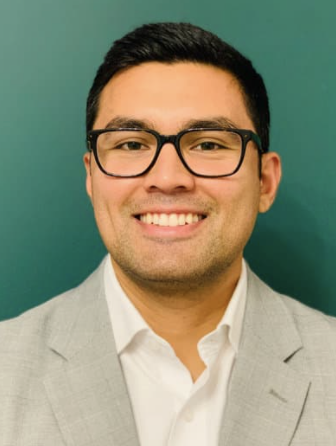By: Edgar Cruz
April 5, 2022
On February 21, 2022, Dr. Paul Farmer suddenly died of an acute cardiac event. Dr. Farmer was a medical anthropologist who co-founded the Partners in Health (“PIH”) organization in 1987. Through PIH, Dr. Farmer and his teams of local accompagnateurs, expanded access to healthcare in poor and rural communities in Haiti, Peru, and Rwanda. Dr. Farmer and his community-based teams treated patients dying of multidrug-resistant tuberculosis, HIV, and Ebola and managed to drastically reduce the number of patient deaths. Their success in treating and curing patients with multi-drug resistant tuberculosis in Haiti helped them raise funds to build a hospital there and expand PIH’s healthcare network globally. They accomplished this despite cynical opposition from the World Bank as depicted in a 2017 documentary about PIH called Bending the Arc.
The World Bank did not believe that treating tuberculosis or expanding access to quality healthcare in those countries was a priority. Even if it were a priority, bureaucrats at the World Bank did not believe that such a healthcare project was sustainable. It did not believe there were enough doctors, trained personnel, nor adequate infrastructure in place to expand PIH’s mission to other impoverished countries. Nevertheless, Dr. Farmer and PIH persisted and showed the healthcare community that providing quality healthcare to the world’s poor is possible if there is a willingness to do so.
Today, cynicism continues to pervade debates about access to quality healthcare. Most recently, cynicism has engulfed the debate about waiving intellectual property protections for COVID-19 vaccines, also known as patent protections. Currently, companies such as Pfizer and Moderna both have patent protections on their recipes to make their highly-effective COVID vaccines. As creators of their respective vaccine recipes, Pfizer and Modern have intellectual property rights. That means that they are the only ones who are legally allowed to use the proprietary recipes to manufacture their proprietary vaccines. As such, Pfizer and Moderna can choose to give other pharmaceutical manufacturers permission to use their formulas for a negotiated payment. Yet, both companies have declined to do so, which has impeded pharmaceutical manufacturers in the global south to fill the shortage of vaccines in their own countries.
Instead, poorer countries have had to depend on donated doses of COVID vaccines from wealthier countries through the COVAX program. COVAX is a U.N.-backed program to distribute COVID vaccines, especially to poorer countries. However, health experts say the distribution of coronavirus vaccines through the COVAX program is not working. Donated doses of COVID vaccines thus far are not enough to “alleviate dire shortages in poor countries.”
In October 2020, India and South Africa submitted a proposal at the World Trade Organization (“WTO”) to waive intellectual property protections for COVID vaccines. On November 26, 2021, the U.S. publicly supported such a proposal, but has not used its leverage at the WTO to make a patent waiver for coronavirus vaccines a reality. The Biden administration has not yet taken “robust action to approve an intellectual property waiver, and merely referred back to the remarks that President Biden made on November 26.”
Others, such as Bill Gates and Moderna’s chief executive, Stephane Báncel, subscribe to the same cynicism that Dr. Farmer encountered at the World Bank. The argument is that even if Pfizer and Moderna shared their COVID vaccine formulas, countries in the global south would not be able to manufacture vaccines in ways that meet the safety standards of “the U.S. Food and Drug Administration and the European Medicines Agency.” Furthermore, “[y]ou cannot go hire people who know how to make mRNA: Those people don’t exist.” In other words, there are not enough trained personnel nor does the adequate infrastructure exist to make the manufacturing of COVID vaccines in poorer countries sustainable.
Stephanie Nolen argues, however, that the infrastructure already exists, and that the personnel is willing and able to be trained. Nolen argues that there are several possible vaccine makers in the global south that could produce coronavirus vaccines if they had the know-how. Many of those vaccine makers have production experience, the necessary facilities, and the human capital to work with. Additionally, the political and economic contexts in those countries provide confidence that COVID vaccine production will be sustainable.
Still, some may argue that Pfizer and Moderna should not be forced to share their COVID vaccine formulas. They may argue that waiving intellectual property protections for COVID vaccines may set a bad precedent and stifle future pharmaceutical innovation.
Nevertheless, they fail to note that American taxpayers funded the COVID vaccine. In fact, U.S. tax dollars funded every new pharmaceutical in the last decade. Despite that, now pharmaceutical companies get to reap big profits while the world’s poor pay the price.
It is times like this that we should remember the work of people such as Dr. Farmer. He showed the world that “[c]ynicism is a dead end.” It is easy to be cynical. The challenge is to maintain hope and to keep working for change by demanding more from those who have the power to influence policy. When it comes to being cynical or hopeful, the choice is ours to make.




